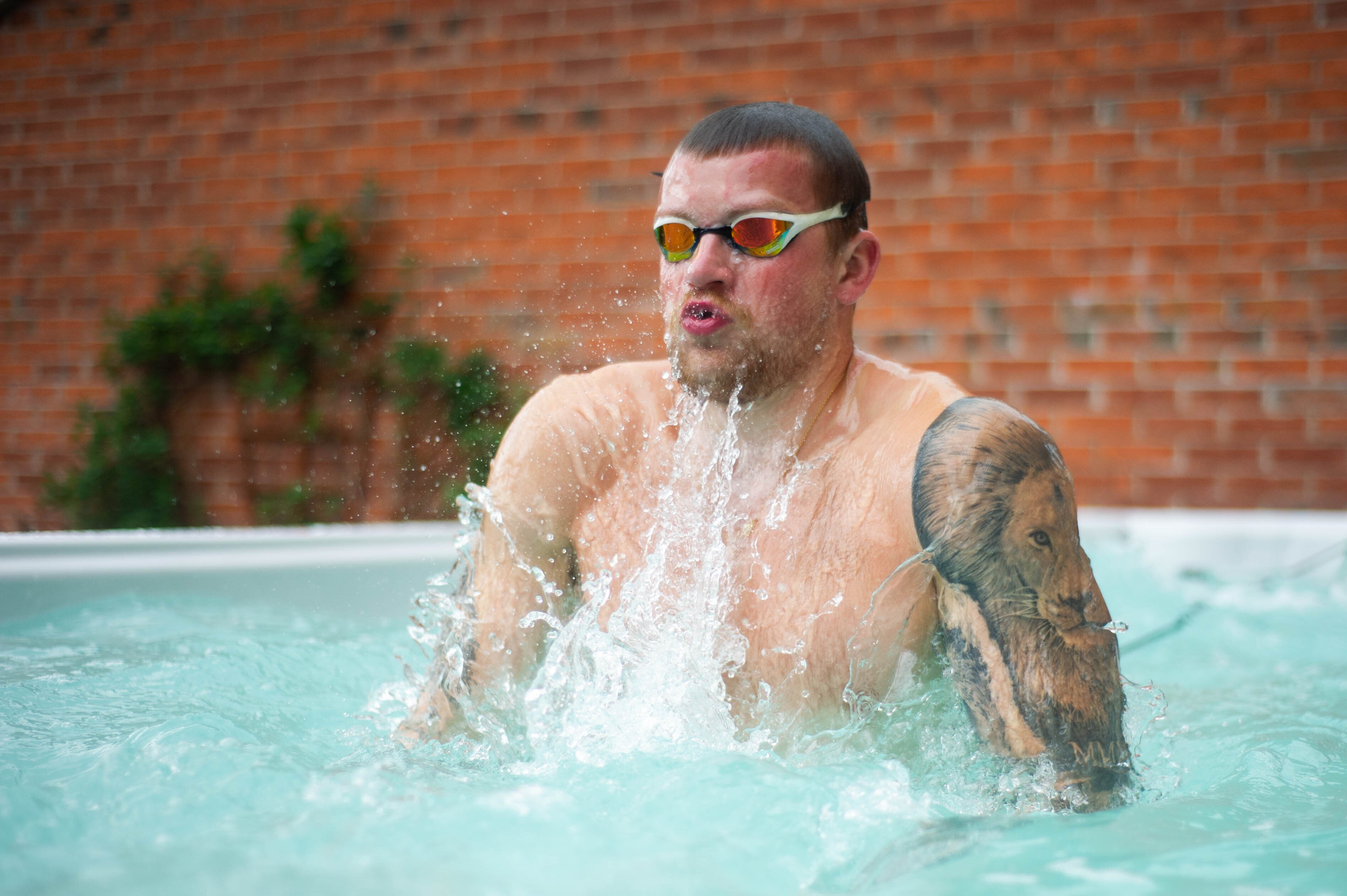Adam Peaty insists pressure brings freedom as he bids to defend Olympic title
Peaty started Team GB’s gold rush at Rio 2016 by topping the podium in the 100 metres breaststroke in a world record time.

Your support helps us to tell the story
From reproductive rights to climate change to Big Tech, The Independent is on the ground when the story is developing. Whether it's investigating the financials of Elon Musk's pro-Trump PAC or producing our latest documentary, 'The A Word', which shines a light on the American women fighting for reproductive rights, we know how important it is to parse out the facts from the messaging.
At such a critical moment in US history, we need reporters on the ground. Your donation allows us to keep sending journalists to speak to both sides of the story.
The Independent is trusted by Americans across the entire political spectrum. And unlike many other quality news outlets, we choose not to lock Americans out of our reporting and analysis with paywalls. We believe quality journalism should be available to everyone, paid for by those who can afford it.
Your support makes all the difference.Adam Peaty feels liberated rather than inhibited by the expectation on his shoulders this summer as he seeks to become the first British swimmer to successfully defend an Olympic title at the rearranged Tokyo Games.
Peaty started Team GB’s gold rush at Rio 2016 by topping the podium in the 100 metres breaststroke in a world record time and he has only gotten better, notably going under 57 seconds at the world championships two years ago.
He sent an ominous warning to his rivals with a world-leading 57.39 secs at the British trials earlier this year, which is more than half a second quicker than anyone else has ever managed in the event.
Holland’s Arno Kamminga is the only other swimmer to breach 58 seconds after clocking 57.9s in April but Peaty is understandably supremely confident with the tag of overwhelming favourite that will be bestowed upon him in Japan.
The 26-year-old from Uttoxeter is further emboldened by the knowledge he and his GB team-mates have the power to lift the mood of a nation hard hit by the Covid-19 pandemic.
“Pressure, for me, is more of a freedom than something that’s going to restrain me,” Peaty said. “I’m a very chilled guy.
“As soon as you take sport out of context of what it actually is – which is: two lengths and swim it as fast as you can and hopefully dominate.
“I know the pressure is there, I know the country is looking for hope and they will be looking to the Olympic team.
“There will be kids who stay up to watch these races, I just want to do it for the next generation of Olympians because I know how I felt (at London 2012) watching that on my TV. I wanted to be that, I wanted to be an Olympian.
Pressure, for me, is more of a freedom than something that's going to restrain me
“Creating that next generation of hope when we’ve had so much thrown at us as athletes and a country, this can ultimately give me freedom.”
The stricter restrictions around travel during the coronavirus pandemic have hampered Peaty’s preparations in the build up to these Games as he revealed he has not had a proper training camp since January last year.
However, as well as knowing his fellow competitors will be in similar or identical situations, the philosophy instilled into him by coach and former Olympic swimmer Melanie Marshall leaves Peaty ready for anything.
“Covid has changed a lot of athletes’ preparations,” he said. “That’s just the way it is. As an individual athlete, you’ve just got to take it on the chin and prepare the best you can.
“It’s very simple for me. I was brought up with Mel pretty much saying ‘perform anywhere, anytime, it doesn’t matter who you’re racing, it doesn’t matter where you’re racing, it doesn’t matter what time you’re racing’.

“If you have that mentality and approach to every single race, it doesn’t matter, you’re still going to get that best performance and I’ve treated that from 2016 into 2017 into 2018 into 2019… and hopefully into these Games.”
Peaty may very well break his own world record once again but he insisted, if not, he will have no lingering thoughts as to what he could have achieved had the Olympics gone ahead as scheduled last summer.
“I don’t live my life with ‘what ifs’ because there’s so many ‘what ifs’ in everyone’s life that you almost become depressed if you think about everything you could have done or should have been,” he added.
“I live in a very present moment, I don’t think about six weeks in the future, I don’t think about six weeks in the past, I just live right now, give the best possible preparation that I can possibly give into these Games.
“I’m not living my life in a ‘shoulda, woulda, coulda’, I’m living in the present right now.”